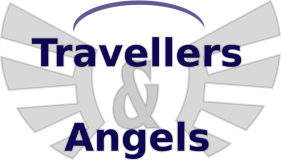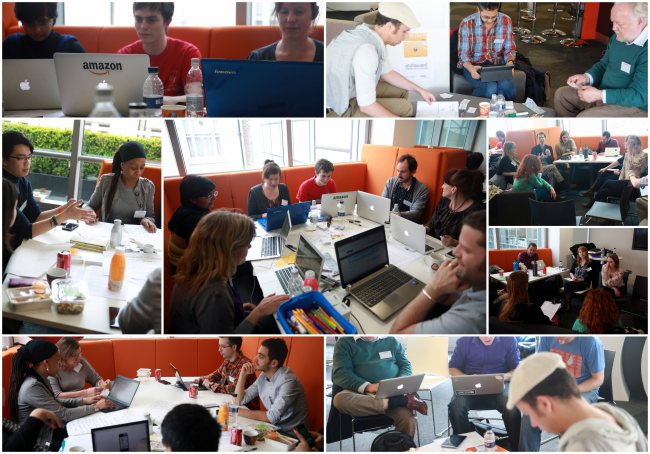
At the end of March Mapping for Change were successful in having our challenge chosen for a “swarm” event around the theme of Citizen Social Science at the Mozilla hackspace in London. Ours was one of four challenges that were selected that had the potential to meet the aims of the event:
“To explore the potential of applying citizen science approaches to solving persistent social problems through rapid prototyping”
And have the potential to produce a prototype within a day!
The event, organised by the Nominet Trust and Swarm brought together a diverse collective of around forty people drawn from social researchers, academics, social innovators, designers, developers and citizen science practitioners to develop potential solutions to real social challenges.
Our challenge was a topic that has emerged from citizen social science research that we are currently working on in the context of the MyAccessibleEU project that Mapping for Change are involved in focusing on exploring barriers and concerns for people with limited mobility. The problem of accessing space on the bus emerged as a major barrier for our research group. So our challenge was:
How can we provide ways for wheelchair users and others to gather real-time citizen-generated data that aids their decision making on modes of transport for example via real-time deployment of bus ramps?
We felt that it was important that we included a potential end user in our team and Maryam Zanouzi from Peer Exchange, a wheelchair user came along for the day. Together with volunteers from the pool of volunteer problem solvers we explored a range of solutions to tackle the issue ranging from docking stations, QR codes, NFC technology and more creative solutions involving crowd-sourcing and Guerilla Sensing.
One of the primary concerns for wheelchair travellers in getting from point A to point B is that sometimes they need assistance in getting on and off the bus. Could there be a way of accessing a pool of volunteer angels who could be available to support them and help them to get on and off the bus? So how do we connect Travellers with Angels?
Image courtesy of SWARM

The design solution was to link up volunteer helpers (angels), typically people who travel regularly on a specific route say to work, with people looking for assistance (travellers) via the Travellers and Angels phone App. A traveller sends out a call for help, an angel responds and they arrange to meet up and make the journey together. Additional functionality we considered could include a web interface and SMS alerts for non-smart phone users and opportunities to incentivise volunteers with game elements such as a points system to claim rewards such as free coffee and take the challenge to become a super Angel in the League of Angels. More positives included the possibility to build social share and support campaigning and awareness raising and expand to other transport networks and end user groups such as tourists and parents with pushchairs.
The idea is outlined in more detail in this presentation.
As researchers actively “doing” citizen social science it was good to see the approach to solving social challenges confirmed by the positive outcomes from the day – and it was good to see other people discovering how relevant and exiting this approach can be.
“Keep an eye on #citsocsci – an experiment at the borders of community crowd-sourcing, citizen science & social innovation”
Dan McQuillan
To find out more about the other challenges and feedback from SWARM and Nominet Trust go to http://citizensocialscience.org.uk/2014/04/29/an-experiment-at-the-borders-of-community-crowdsourcing-citizen-science-social-innovation/